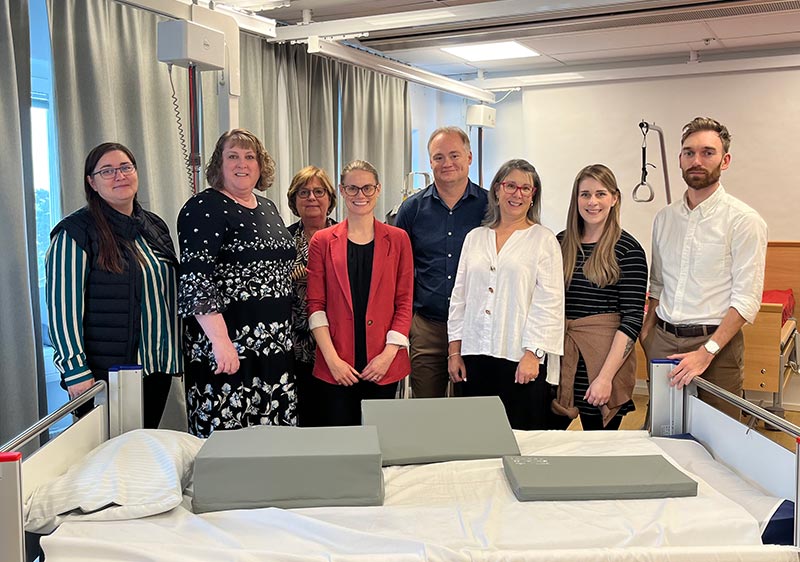Team returns from Denmark equipped to make nursing homes safer
Author: UNB Newsroom
Posted on Dec 5, 2022
Category: UNB Fredericton

A team of New Brunswick representatives recently returned from Denmark, ready to face the challenge of providing a safer workplace for nursing home employees.
The delegation included members from the University of New Brunswick’s (UNB) faculty of kinesiology, New Brunswick Continuing Care Safety Association (NBCCSA), l’École de kinéiologie et de loisir from l’Université de Moncton (UdeM), Centre for Innovation and Research in Aging (CIRA), York Care Centre (YCC) and the New Brunswick Nursing Home Association (NBANH).
Denmark was selected as the location for the fact-finding mission due to the significant investment that the country makes in technology and equipment to reduce or eliminate musculoskeletal injuries (MSI) in healthcare workers.
In the last two years, the NBCCSA has changed its focus on musculoskeletal injuries from mitigation through training to elimination for healthcare workers with the addition of new technologies and equipment.
“The timing could not have been better for this initiative,” said Wayne Albert, dean of kinesiology at UNB. “Dr. Cardoso and I are in the process of establishing an ergonomic research program focused on healthcare.”
"We now need to secure at least five years of funding to give this initiative a good start,” said Dr. Michelle Cardoso, professor at UdeM. “The research program encourages collaboration between both universities, private industry, healthcare providers and industry experts in the province of New Brunswick.”
Two state-of-the-art ergonomic testing labs (one in Fredericton and one in Moncton) have been established. The first project, once additional funds are acquired, will test and validate a client-handling tool currently used in Denmark called a Vendlet. This device reduces strain on bedside healthcare workers by aiding in patient movement without manual pushing or pulling.
The goal of the potential impact of this first project is a better work/life balance for staff, increased quality in care for residents and alleviation of staff shortages.
